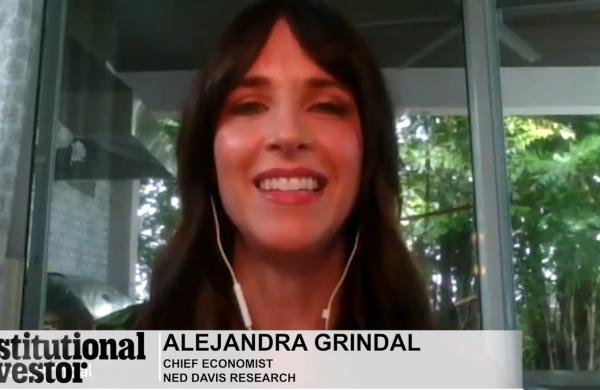A recent theme in the U.S. equity market narrative has been the inevitability of a correction. The scenario many pundits see playing out is that with U.S. stocks having foregone a 10 percent or greater intraday correction by the fourth-longest period since 1929, something must give. Guessing what that something will be has been more difficult for prognosticators as investors have shrugged off geopolitical nightmares and grim economic data for months allowing equities to reach record highs, often at the expense of traditionally defensive assets. Some analysts see a contrarian indicator in the multiplying forecasts for a tumble in stock prices. Among those voices is David Rosenberg, chief economist at Gluskin Sheff in Toronto, who commented yesterday, “While we are positioned for a pull back, something tells me that this had become such a universal view that it is bound to be a short and shallow affair.”
U.K. sets regulatory wheels in motion on key benchmarks. The U.K. Treasury today launched a formal review of legislation regarding manipulation of benchmark rates and indexes, such as the commodities, fixed-income, and foreign-exchange markets. According to the proposed legislation, drafted in response to LIBOR fixing scandals, there would be stiffer penalties for financial institutions that engage in practices that intentionally distort benchmark prices set in open markets.
People’s Bank of China governor reportedly getting ready to retire. Multiple media outlets are speculating today that Zhou Xiaochuan, the governor of the People’s Bank of China, is preparing for retirement. At the helm of China’s central bank since 2002, Zhou, the longest-serving central bank head in the country since the establishment of the People’s Republic of China, is perceived as a supporter of allowing free-market prices.
Chinese regulators put exporters under the microscope. The State Administration of Foreign Exchange today announced that its estimates Chinese companies have reported nearly $10 billion in fake currency trade activity. Used as a fraudulent mechanism to move capital in and out of the country, the false trades have been seen as a source of the hot money that has boosted commodity prices in recent years. The watchdog agency pledged to punish going forward corporations who engage in the practice.
Private lending activity in Europe sluggish. Euro zone M3 money supply index levels for August expanded more than forecast, however private lending has remained stagnant. While a modest pickup in the supply of cash at 2 percent year-over-year is a positive signal for European Central Bank inflation targets, the year-over-year 1.5 percent contraction in loans indicates that central bank liquidity efforts have not passed through to capital-starved European businesses. Some analysts ascribe the difficult lending market to the ongoing ECB financial stability review, which may leave financial institutions reluctant to extend fresh credit.
U.S. claims data on deck. Initial jobless claims data for the week are scheduled for release at 8:30 am U.S. Eastern time. Consensus forecasts are calling for an expansion from last week’s surprise 280,000, the second-lowest level recorded since the 2008–’09 financial crisis. Separately, durable-goods orders for August, also scheduled for release at 8:30, are expected to contract for the month after a one-off flurry of aircraft sales distorted July’s reading.
Portfolio Perspective: The State of U.S. Equity Markets — Adam Grimes, Waverly Advisors
It would take a major macro or headline disruption to materially change the state of the U.S. equity markets over the next several weeks. Any large downward shock is likely to be absorbed quickly. We want to see that buyers still have an interest in stocks and that selling does not lead to further selling. Large-scale weakness in U.S. stocks could signal a significant — as in a six-month — period of global weakness. U.S. indexes are holding at new highs. Though a pull back or even a sharp sell-off is possible, it would be likely limited in time — less than two weeks — and scope. Again, selling should not lead to further selling. Over in Europe, bearish patterns in Europe should fail: Again, selling should not lead to further selling. We see no moves in rates, currencies or any commodities that at this point could have a significant impact on global stock prices.
Adam Grimes is the managing partner and CIO of Pittsford, NY–based research and asset management firm Waverly Advisors.






